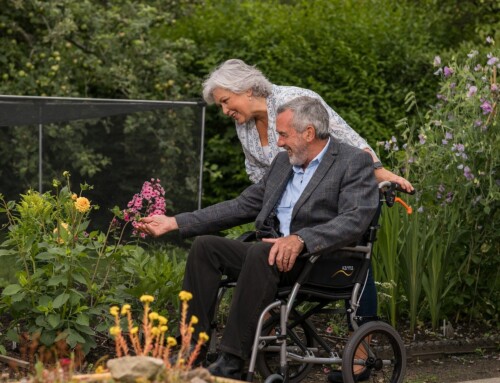Assisted living centers have changed a lot in the last several decades. Contemporary residences provide engaging social calendars, age-appropriate exercise classes, landscaped campuses, and prepared nutritious meals. As attractive and inviting as these facilities can be to some, others are reluctant – many older adults would far prefer to stay in their own homes if they can. Aging in place is the preferred living situation of 88% of elderly respondents to a recent survey conducted by the AARP. Many seniors have paid off their mortgages and enjoy the financial stability that represents. Seniors also have many fond memories associated with their personal home – whether it be raising children, hosting favorite friends and loved ones on holidays, or living with a long-term spouse. For many of those over 65, remaining in their homes is a valid option if they have a support system and do not require extensive medical care. But for those seniors who are living with impaired mobility, reduced cognitive capability, or lack of balance – assisted living may be a viable alternative. Still, even if the senior agrees to move, the act of leaving their home can initiate a lot of stress.

Moving is one of the most emotionally stressful events for anyone at any age, often compared to dealing with a major loss. Moving is especially complex for senior citizens who have decades of memories wrapped up in a physical house. This is the reason that the medical community identifies these experiences as relocation stress syndrome (RSS) or “transfer trauma.” The visible symptoms of RSS can involve confusion, anxiety, stress, and loneliness. There are tangible steps that family members can take to help your senior loved one to handle relocation more easily.
Steps to Alleviate Moving Stress
Take your time: When the move is made necessary by an unexpected event, such as a medical emergency, decisions need to b made quickly. But if you can plan for the move, you can take the process more slowly and involve your senior loved one in the discussion and the decision. This will allow them the needed time to get used to the thought of moving.
Focus on well-being: Stress and anxiety can be aggravated when inadequate nutrition and chronic fatigue are added to the mix. Focus on offering nutritious meals, participating in exercise, and prioritizing sleep, and anxiety can be reduced.
Contact the facility early on: Transferring a senior citizen’s daily routine over to an unfamiliar place can generate excess stress and anxiety. Before making the move, acquaint your loved one with the staff, meet current residents, and look through the calendar of events to choose a few activities your senior would like.
Arrange the room: Another tangible strategy for reducing feelings of stress and isolation is to arrange their new home to look more familiar. From personal photos to favorite furniture and familiar blankets, you can help the new residence feel at home.
Schedule your first visit: One of the most pressing anxieties the elderly experience is the fear of being abandoned. Help to alleviate these fears by establishing a calendar of your visits, starting with the first time they can expect to see you. Ensuring that your loved one has routine visitors is an excellent way to ease stress.
Although you can ease anxiety, you probably can’t completely eliminate these feelings. If your loved one is coping with relocation stress syndrome, try the above recommendations – and then consult with the administration at the new residence.
A Banyan Residence is an assisted living and memory care facility located in The Villages, Florida.







